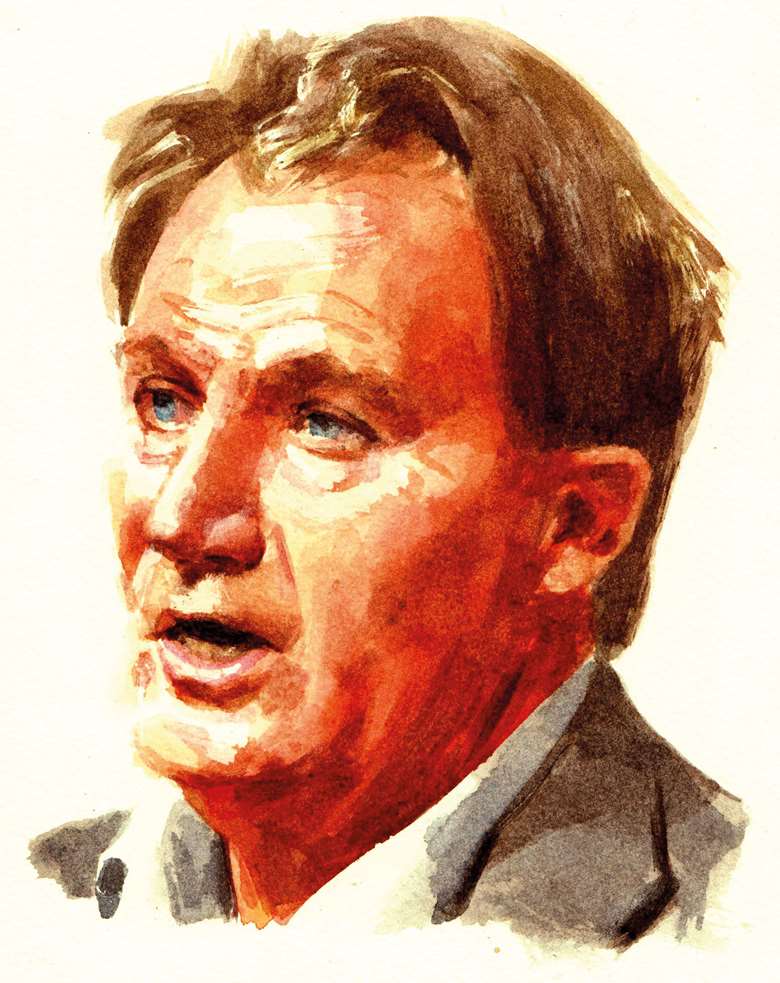Alastair Fothergill | My Music: ‘What music can do, with a good composer, is it can hold the hand of the audience’
Friday, September 6, 2024
The award-winning documentary producer on how nature and travel inspired his love of music

My father was a schoolteacher at Harrow, so that’s where I heard most of my music as a child. He taught Russian and I have very vivid memories of trying to go to sleep while he played extraordinary Cossack choirs, singing ‘Kalinka’. I tried to learn the bagpipes for about a term, then the bagpipe teacher decided that the bagpipes and I were better separated. It was the sound of the natural world that dominated my life as a child.
Music has become a very important part of my life professionally. In my early career I used to travel with David Attenborough a lot and he has extraordinary knowledge and passion for music. He always used to come on location with a little Tupperware box full of CDs and sit down in the evening and listen. I would love to say that I have time to relax and listen to music but we work from dawn to dusk so I don’t have the time which I miss because I saw the immense pleasure that David gets from it.
Before co-founding Silverback Films [in 2012], I was at the BBC Natural History Unit where we did these big landmark multi-part series, usually narrated by David. And music has been utterly fundamental. For me, it’s the heart of storytelling. One of the things that we always say about good natural history films is the fewer words, the better and our starting point is, let the pictures tell the story. But what music can do, with a good composer, is it can hold the hand of the audience in a narrative sense. It can give them the pointers that say, look at this, what about this? Most importantly, it’s about emotion.
The days I spent at Abbey Road with George Fenton are some of the best days of my life and certainly the most creative. I did Blue Planet, Planet Earth, Frozen Planet and Wild Isles with George and it’s been a wonderful journey. He’s taught me so much about music – I never understood the power of the French horn until George showed me. I think a composer respects a producer who understands the power of music and how you use it.
There’s so much complexity in a brilliant score. In Wild Isles we had a piece of music that was going to be played by a cello and I absolutely knew that once the real cello was playing it, it would be exquisite. The demo was fine but it wasn’t beautiful and the producer said ‘this isn’t working,’ and I said ‘trust me.’ And we went to Abbey Road, George had this fantastic cellist come in, she did a most beautiful job and the producer came up to me and said, ‘it’s the best piece of music in the whole programme!’
We’ve done a lot of tours with a live orchestra and clips from the series on a big screen. I love it because it’s very visceral, you hear the audience reacting to it. It’s like being in a cinema but of course, it’s the music that’s dominant. That’s really special.
The Netflix series Life on Our Planet is amazing because it combines photo-real CGI with blue-chip natural history. It’s the story of evolution on our planet, which is the greatest story in nature. Spielberg is the executive producer and it’s big, really cinematic, so it needed a cinematic score and I think it’s absolutely got it. I love what Lorne Balfe has written.
I’ve travelled everywhere and everybody says, OK, but where do you love most? It’s probably Scolt Head on the north Norfolk coast or the Somerset Levels on a nice May or June day – I can’t imagine anywhere more beautiful and what would remind me of that would be The Lark Ascending. I know it’s a cliché but for me, it is very evocative of British nature. I also love Vaughan Williams’s Sinfonia antartica. A lot of my work has been in the Poles, particularly in Antarctica. It’s a very emotional place for me. You always feel much smaller than nature; the power of the wind, ice and the sea … it almost scares you and I think that symphony really captures that.
interview by Jo Frost
Life On Our Planet in Concert tours the UK from October 2, eskfilm.com/life-on-our-planet-live
This article originally appeared in the October 2024 issue of Gramophone magazine. Never miss an issue – subscribe to Gramophone today
















